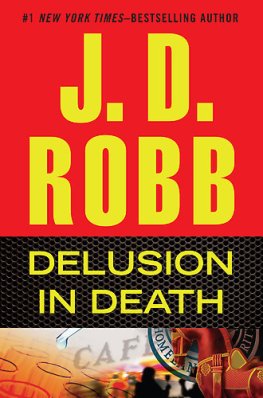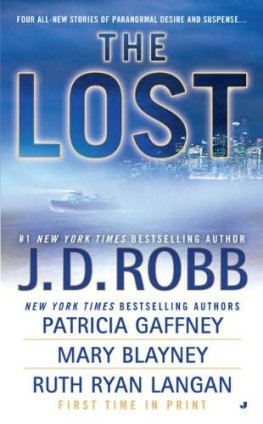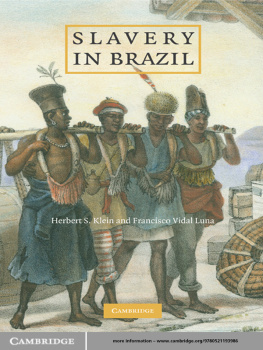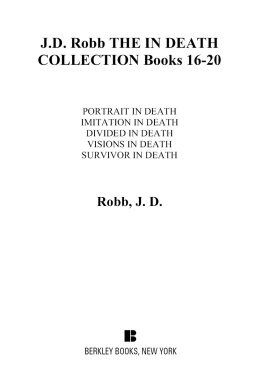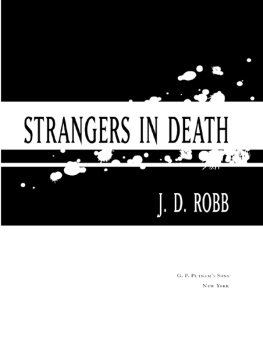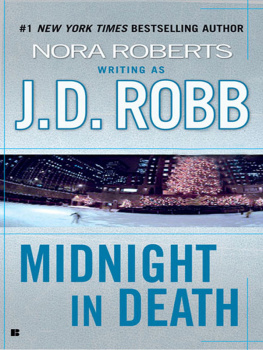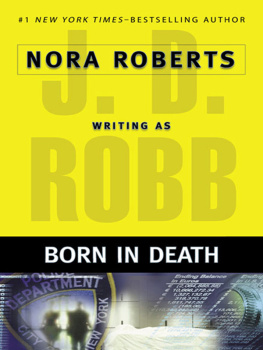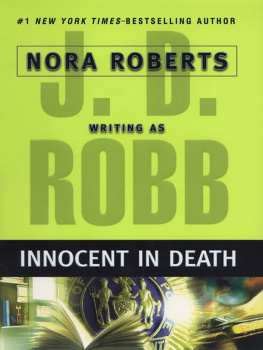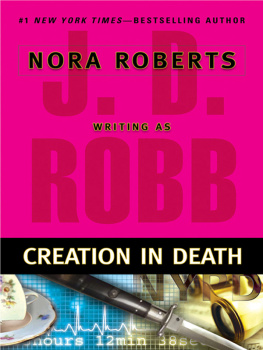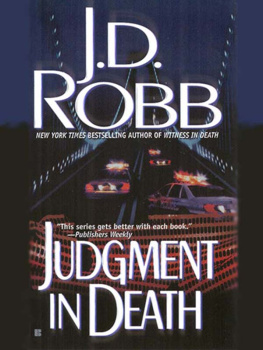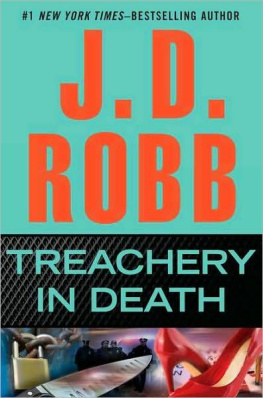Praise for A Death in Brazil:
An astonishing feat of storytelling Peter Carey, Booker Prize winner
Glorious ... fascinating and revealing New York Times
Robb paints a picture of Brazil quite unlike any other Publishing News
Electrifying ... enthralling Literary Review
Fabulous ... Robb writes beautifully Irish Examiner
Reads like a thriller Daily Express
Eclectic and inventive ... a wonderful book Guardian
A brilliant portrait of Brazil Sunday Tribune
Fabulous ... an utter marvel Waterstones Books Quarterly
An intoxicating cocktail of a book Time Out
Masterful Sunday Business Post
A brilliantly atmospheric study of twenty-first-century Brazil Sunday Times
Excellent... mesmeric ... I eagerly anticipate Robbs next work Irish Times

IM
Florisvaldo Azevedo de Carvalho
You can put anything into a book of omissions. Reading one of these never worries me at all. What I do when I get to the end is close my eyes and think of all the things I didnt find in it. So many great ideas come to me then, really deep thoughts.
MACHADO DE ASSIS
The tram goes by full of legs:
White legs, black legs, yellow legs.
My God, what are all the legs for, asks my heart.
But my eyes
ask nothing at all.
CARLOS DRUMMOND DE ANDRADE
Brazil made me intelligent.
FERNAND BRAUDEL
Contents
Like everyone, I went to Brazil to get away. At the start it was easy. At the beginning of the eighties Brazil still had a consulate in Naples. It occupied a vast and gloomy suite with high ceilings and the finest veil of dust in a distinguished Umbertine palazzo two blocks in from the Bay of Naples. On a clear day you saw Capri from its window. The consulate was marked by an oval plaque in burnished brass and you reached the office in a clanking iron cage lift with glowing mahogany seats.
Reception was manned by a tall lady with parchment skin and horn-rimmed glasses on looping chains. Another nearly identical lady lurked within. They wore silk blouses in the heat and cashmere twinsets in the cool. Their dark straight hair was pulled severely back, their feet shod in costly lace-up shoes and they moved softly in long skirts of handwoven tweed. Behind frosted glass yet farther in I once saw a fuzzy silhouette of the consul himself. There was a huge old Underwood typewriter with a cast-iron frame on the reception desk, several wilting aspidistras in pots in the corners and a fly spotted schoolroom map of the Americas on the wall.
I wondered what the old ladies had to do in Naples, and they seemed to be wondering too. There was a Brazilian I knew studying navigation at the Naval Institute, but that was all. A hundred years earlier, hundreds of thousands of southern Italian peasants had sailed steerage for Brazil from Naples. Now a third of Brazilians were of Italian descent, and some of the richest among them. The rich came to Italy to spend and poor Brazilians, if they could, would come to Italy to make their fortune. Most of these were transsexuals who plied their trade at the richer freeway junctions farther north. The Naples consulate was dying of inanition. The fan flicked around noiselessly. Though they made it clear that the consul couldnt be hurried, the two ladies were always very good about my visa. Of course I went to Rio first, via Casablanca with Royal Air Maroc, which had a special offer at the time.
I
Mixed Blood
Murders happen anywhere and mine most nearly happened in Rio. Twenty years later only the scar of a small knife wound on my arm reminds me that this is a memory and not a dream. The night went on and on like a dream, with a dreams ungraspable logic, or a Brazilian soaps. Details become wonderfully vivid, like the old carving knife with a long curved and darkened blade carelessly left earlier on the kitchen bench of the Copacabana flat, in the moment it was being held at my throat. My Portuguese lost its rudimentary awkwardness and became unreally fluent very fast. Words Id never known I knew came pouring from my throat. Things flowed with a dreams weightless speed. The danger lay in the speed. A flailing knife blade moves faster than thought. Movement had to be slowed, the heat lowered. It was the one thing I understood. Let nothing happen. Respond to violence, speed and noise not with violence, speed and noise but with ponderous torpidity, envelop each new threat in slowness. The beautiful Portuguese periods began to roll, slowly, slowly, but with what baroque grace, from my amazing tongue. Obtuse fearlessness stayed the hand with the knife, impassive calm put a little wobble in the spin of violence.
Chance put the knife in Adelmos way. Chance, or Brazilian entropy, had saved me a moment before we worked our way to the kitchen. The hideously old-fashioned Brazilian furniture, in the sitting room where it started, was a wasteful mass of dark stained solid tropical woods and dark brown cowhide upholstery and rows and rows of little brass studs. Adelmo grabbed a lamp and then a chair to smash my head. The lamps base was cast iron and the chair too heavy to wield. When we got to the kitchen and he grabbed the knife, a tiny part of the first fatal impetus had been lost.
Thereelaborately, ponderously, holding his eye hypnoticallyI laid out the options. I told him that since he held the knife, if he wanted to kill me he probably could. Yet there was nothing of value in the flat. This looked likely. There were a couple of pairs of jeans and a few faded polo shirts flung around and that was all. The American dollars under the mattress would have been to Adelmo a huge amount, but I didnt mention them. If Adelmo started looking he would find the money in seconds and kill to leave with it. It was important that Adelmos mind be kept off looking for cash. The baroque periods surged and crashed, like the thunder of surf in the night, as Adelmo learned that the noise of any assault would be heard by the neighbors in the next apartment. The neighbors, Adelmo heard in an elaborately inserted parenthesis, were close friends of mine. There were several of them next door, young, physically vigorous, and holders of a spare front door key to the apartment we were in. The apartment was vacant, but what was baroque prose for, if not to put a spin on simple realities? Finally, the doorman downstairsarmed of course, and a family friendwas the only person able, from within his reinforced glass booth, to activate the mechanism that unlocked the heavy glass doors that opened onto Our Lady of Copacabana Avenue, and the doorman had strict instructions never to let visitors out of the building unless they were accompanied by myself. A strange order, improbable even, but a slight cause for concern to anyone who might be planning to kill and leave. By name I mentioned the particularly hideous Rio jail where Adelmo would spend the rest of his life.
This little touch kicked in to great effect. Nobody likes to feel trapped, and Adelmo knew all too well the experience of being locked in. He hated it. Later, when the emotional cycle had turned again, he showed me the scars on his legs that had been made by the bullets fired at him by the reform school guards as he ran off. Adelmo had been fending for himself since he was very young. And for the next couple of hours he held the carving knife to me in the kitchen. And talked. He laid out his life in words. The flashing-eyed knife-waving anger dissolved in tears of unhappiness at his lot. The only reason he hadnt killed me, he said with an unexpected sob, was that Id been so good to him. The restaurant, the respect. He would have killed anyone else. Then the knife was at my throat again. Still holding the knife, he threw his arms around me.
Next page

